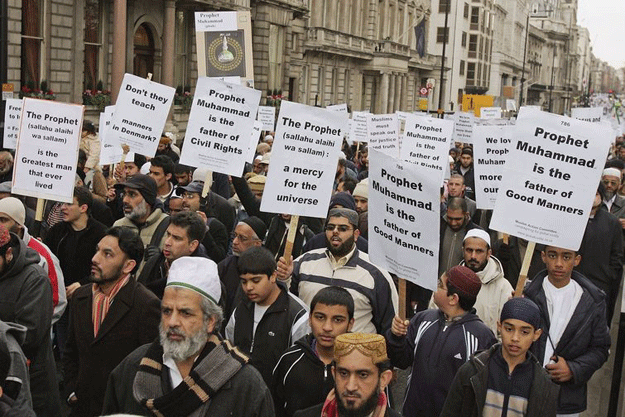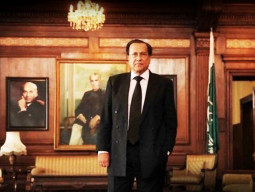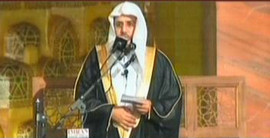
"It's all rooted in the notion of idol worship," Akbar Ahmed, who chairs the Islamic Studies department at American University told CNN. "In Islam, the notion of God versus any depiction of God or any sacred figure is very strong."
Akbar Ahmed told the CNN that Muslim artist have depicted the Prophet Muhammad(pbuh) in the 15th and 16th centuries but took care to avoid drawing his face.
"In the context of Europe, where in many countries Muslims feel like they are besieged, these images are not seen as criticism but as bullying. Violence as a response is clearly wrong and disproportionate. However, it is not so much about religious anger as it is about vengeance," he added.
Mohamed Magid, an imam and former head of Islamic Society of North America, told CNN that the Muslim prohibition on depicting prophets extends to Jesus and Moses, whom Islam treats as prophets. Some Muslim countries banned the films "Noah" and "Exodus" this year because their leading characters were Hebrew prophets.
Prophet (pbuh) on depictions of himself
It is also noteworthy that Muhammad (pbuh) did not approve of cartoons and images of himself.
"The prophet himself was aware that if people saw his face portrayed by people, they would soon start worshiping him," Ahmed told CNN. "So he himself spoke against such images, saying 'I'm just a man.' "
In a bitter irony, the sometimes violent attacks against portrayals of the Prophet (pbuh) are kind of reverse idol-worship, revering -- and killing for -- the absence of an image, said Hussein Rashid, a professor of Islamic studies at Hofstra University in New York.
Dalia Mogahed, the Director of Research at the Institute for Social Policy and Understanding, explained that Muhammad is a beloved figure to Muslims, and "it is a human impulse to want to protect what's sacred to you."
Mogahed drew a comparison by referring to the issue of flag-burning in the US. She said majority of the Americans support a constitutional amendment to ban flag burning for similar reasons; the flag is a symbol of national identity and that most Americans see flag-burning as an attack on that identity. This is not about fundamentalism or lack of wisdom but about protecting what you hold dear.
A clash of identities lies at the root of the impacts such cartoons have."Holding religious symbols as sacred is in and of itself seen as backward, superstitious, and pre-modern." explains Mogahed.
Scholar and author Dr Reza Aslan confirmed the findings of Mogahed and said that he receives severe reaction if he criticizes American foreign policy as he does if he comments on religious figures.
"For some Americans, their national identity is sacred in the way that for some religious people, their religious identity is sacred," he said. "And to criticize America is to insult America."
Aslan elaborates that part of the offense comes from the fact that the cartoons appear specifically designed to incite a severe response.
"I’ve had extensive conversations, for instance, with the editor of Jyllands Posten, who published the famous Muhammad (pbuh) cartoons," Aslan recounted. "And he says, without apology, that those cartoons were a deliberate attempt to poke a stick in the eye of Denmark’s Muslim community. To rouse them, to essentially prove that ‘unless you can put up with this, you don’t belong in Denmark."
The article originally appeared on VOX and CNN.










































COMMENTS (19)
Comments are moderated and generally will be posted if they are on-topic and not abusive.
For more information, please see our Comments FAQ